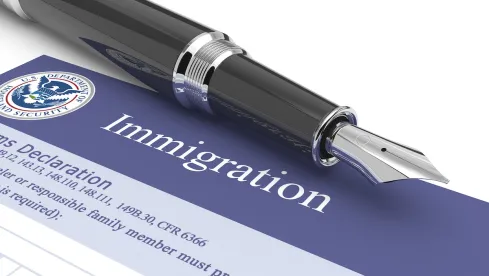The Immigration and Nationality Act delegates authority to the Department of Homeland Security (DHS) to decide whether to parole a foreign person into the United States. Parole is a discretionary remedy decided on a case-by-case basis, evaluating the totality of evidence to determine if the foreign person’s presence in the United States will provide a significant public benefit and otherwise merits favorable discretion.
The previous parts of this series on the International Entrepreneur Parole (IEP) program have reviewed the program requirements — who is eligible and what documentation is required. This final part discusses program application procedures — how applicants qualify.
Procedures
The Role of USCIS
International entrepreneurs seeking parole to enter the United States to have a central and active role in a start-up company that has significant potential for rapid growth and job creation must file an application for IEP with USCIS. The application created for this purpose, Form I-941, Application for Entrepreneur Parole, gathers information required for U.S. Citizenship and Immigration Services (USCIS) to adjudicate eligibility for IEP.
There currently is no published processing time for USCIS to adjudicate an IEP application filed on Form I-941. A previous part in this series discussed the significant documentary burden imposed on applications based on start-up companies funded by private investors. USCIS will need to devote sufficient resources to ensure prompt adjudication of IEP applications to make the program a viable pathway for foreign entrepreneurs.
A pending or conditionally approved IEP does not provide lawful presence in the United States. Accordingly, if an IEP applicant is present in the United States, it is necessary to maintain nonimmigrant status or be otherwise temporarily authorized by USCIS to be present. An individual can proceed with an IEP application while unlawfully present in the United States. Accruing more than 180 days of unlawful presence, however, would create a ground of inadmissibility that could preclude entry to the United States with IEP. Applicants for IEP should be cautioned that even a period of unlawful presence of less than 180 days may be considered a derogatory factor that, on balance, may be a reason for USCIS to refuse parole.
Upon approval of an application, USCIS issues Form I-512L, representing a conditional parole approval with a validity period up to 30 months. Approval of an IEP application and receipt of a Form I-512L parole document does not by itself grant parole to an international entrepreneur. After approval by USCIS, the entrepreneur must take additional steps to be paroled into the United States. If the entrepreneur is present in United States when USCIS conditionally approves the parole application, they must depart and appear at a port of entry to request parole by U.S. Customs and Border Protection (CBP).
The Role of the Department of State
Individuals outside the United States when applying for IEP will need to provide biometrics, a digital photograph and fingerprints, before their application can be approved. Policy guidelines provided by USCIS suggest that capturing biometrics will be performed at a U.S. consulate abroad. However, at this writing, the process for providing biometrics abroad has not yet been defined.
Individuals outside the United States when IEP is approved by USCIS also will need to attend an appointment at a U.S. consulate to obtain a travel document prior to traveling to a U.S. port of entry to request parole. USCIS has indicated in its policy guidance that the travel document will be issued by the Department of State (DOS) pursuant to its own policies. No procedures have been published by DOS, however, to allow persons conditionally approved for IEP to schedule an appointment or appear at a consulate to obtain a travel document. These details are expected to be announced by DOS in the immediate future.
CBP Makes the Final Parole Determination
The final discretionary decision to parole any foreign person into the United States is made by CBP. Regardless of whether an IEP applicant is present inside the United States or abroad when USCIS conditionally approves an application and issues Form I-512L, the applicant must appear at a port of entry for a final parole determination by CBP.
According to USCIS policy guidance, it is expected that CBP will “likely” exercise its discretionary authority to grant parole to persons in possession of an IEP approval notice, Form I-512L. Another unknown element at this writing is the scope of CBP review of IEP eligibility. It is possible that CBP will seek to conduct its own IEP determination. As a law enforcement agency inspecting arriving international travelers, however, CBP would not be well-equipped to conduct such an evaluation of business records and an entrepreneur’s ability to perform a central and active role in a start-up company.
It is more likely that CBP will treat Form I-512L much like an Advance Parole document issued by USCIS in connection with an application for adjustment of status from temporary nonimmigrant classification to permanent resident status. In such cases, applicants for adjustment of status in possession of an Advance Parole document are routinely paroled into the United States by CBP after verifying the individual’s application remains pending and there is no new derogatory information that would preclude a grant of parole. A similar policy by CBP for foreign entrepreneurs presenting Form I-512L would be a welcome approach.
Employment Authorization
Once paroled into the United States by CBP, an international entrepreneur is automatically authorized to engage in employment. Such authorization is incident to the parole. This automatic employment authorization under the IEP program is an exception to the general rule that persons paroled into the U.S. based on significant public interest normally must apply for an Employment Authorization Document prior to commencing employment. Given the indeterminant period required by USCIS to adjudicate an IEP application, forgoing the need to wait for a second time for USCIS to adjudicate a separate application for employment authorization is a tremendous benefit.
Renewal of IEP
Parole is granted by USCIS under the IEP program for an initial period of 30 months. International entrepreneurs wishing to extend their parole must file a new Form I-941 before the expiration of their initial 30-month period of IEP.
When re-applying for IEP, applicants must demonstrate that they continue to hold at least 5% ownership interest in the start-up company. In addition to demonstrating that the start-up received the requisite minimum investment funding, the renewal application also must show that the start-up achieved certain required growth benchmarks. There is some flexibility in the evidentiary requirements applicants must produce when seeking to renew IEP for a second interval of 30 months.
To demonstrate that the start-up reached the required benchmarks, it can show it created at least five jobs for U.S. workers. Alternatively, the applicant can show that the start-up reached at least $528,293.00 in annual revenue with at least a 20% annual growth rate. Finally, if neither of the two preceding benchmarks have been reached, the application may produce other reliable and compelling evidence that the start-up company has substantial potential for rapid growth and job creation.
If Denied Extension of IEP
Applicants who fail to satisfy USCIS that they deserve an extension of IEP have no recourse. There is no legal process for an administrative appeal of the denial of parole. USCIS policy states that no motion for reconsideration will be entertained. Furthermore, as a remedy completely within the discretionary authority of DHS, there is no option for judicial review for abuse of authority under the Administrative Procedures Act.
While the absence of recourse for international entrepreneurs denied an extension of IEP may appear harsh, it is consistent with the completely discretionary nature of parole determinations. There are few due process rights associated with the process for granting, withholding, or rescinding parole. USCIS can terminate IEP at any time, with or without prior notice. There is no requirement for USCIS to send a request for additional information or issue a Notice of Intention to Deny a pending application.
Additional Entrepreneur Requirements
Individuals granted IEP are required to maintain an income level equal to or greater than 400% of the current federal poverty guidelines. Any material changes in the condition of the start-up enterprise must be reported by the entrepreneur by filing Form I-941 with USCIS. The initiation of any criminal or administrative proceeding by any government, whether federal, state, or local, against either the start-up entity or the entrepreneur is cause for termination of IEP.
IEP Dependents
The spouse and children of an international entrepreneur may apply for parole to enter the United States, either concurrently or sequentially, by filing Form I-131 with USCIS. Both the spouse and children also must merit favorable exercise of discretion by USCIS after finding a humanitarian need or significant public benefit in granting them parole. USCIS policy recognizes a significant public benefit in permitting family members to accompany an international entrepreneur to encourage entrepreneurial activities in the United States.
Once paroled into the United States, the spouse of an international entrepreneur may apply for employment authorization by filing an application with USCIS. Unlike a principal entrepreneur granted IEP, spouses are not authorized to engage in employment incident to their parole and must wait to receive an Employment Authorization Document from USCIS prior to beginning employment. While the spouses of persons granted IEP may be employed by the start-up enterprise, their employment would not be counted to satisfy the minimum five workers as a benchmark for renewing IEP. Children paroled to accompany a principal granted IEP are not authorized to engage in employment.




 />i
/>i

